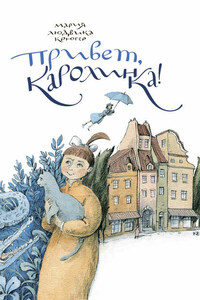Since the foundation of the Red Cross in America, many direful calamities have afflicted the country. In each of these visitations the Red Cross has acted in some degree as the Almoner – the distributer and organizer – of the bountiful measures of relief that have been poured out by the American people.
Its work has been accomplished quietly and without ostentation. All the relief has been administered – not as charity – but as God-sent succor to our brothers and sisters who have been overwhelmed by some mighty convulsion of the forces of nature.
The wreckage has been cleared away, the stricken people have been wisely, tenderly, and calmly guided out of panic and despair on to the road of self-help and cooperative effort to restore their shattered homes and broken fortunes; and then the Red Cross has retired as quietly as it came, and few, outside of the people immediately concerned, have realized the beneficent powers of help and healing that have fallen like a benediction upon the stricken wherever that sacred symbol of humanity has made its way.
It is my thought that a brief account of the work of the Red Cross during the past twenty-five years will be of interest to the American people. In a volume of this size it must of necessity be but a brief outline, sufficient, however, to convey a clear impression of what the Red Cross really means to every individual in this great country of ours.
To the thousands of American men and women whose generous bounty has made the work of the Red Cross possible, to the stricken and distressed who because of it have been helped back to life and hope, and to all the friends of the great, universal humanity which it typifies, this small book is lovingly dedicated.
Glen Echo, Maryland,
May 15, 1904.
"I have lived much that I have not written, but I have written nothing that I have not lived."
It was a little blue-eyed girl of ten who sat on a low hassock at my feet, slowly drawing the soft auburn curls between her fingers, when, suddenly lifting her head and looking me earnestly in the face, she exclaimed: "What is the Red Cross? Please tell me about it; I can not understand it."
There was a pleading earnestness in the tone not to be resisted, and laying down my pen I commenced to explain to her the principles, history, and uses of the Red Cross. She listened anxiously, the pretty brow knitted; she seemed more and more perplexed, until, as if a light had broken over her, she exclaimed, half impatiently:
"Not that – not that, tell me something it does– it and you, I can understand it better then."
A light had broken over me. It was a story the child wanted to illustrate the principle and bring it home to her. A story she must have.
In a half hour she felt that she knew it all and was an ardent devotee even of its principles. But she had given me more than I had given her. Here was food for thought.
For twenty-five years I had labored to explain the principles and uses of the Red Cross; had written enough for a modest library of what it was and what it meant, but, lest I seem egotistical, not a page of what it did. The child had given me an idea that I would for once put into practice, and write a few pages of what the Red Cross had done, leaving principles to present themselves.
I will commence even back of itself.
Forty years ago, before most of you were born, a great war had been fought in America, in which thousands died from battle and hardship, and thousands more still left alive were worn out in the untried and unsystematized efforts at relief that had been made through nearly five years of continuous war. Of these latter, many were women who dragged out weary lives in their own homes, some went to hospitals and retreats for rest and care, and some were sent abroad. One of these latter I knew personally, for, as Patrick would say, "It was me-self."
To me it seemed a hard sentence that our physicians imposed. I had grown to love the country we had so toiled for, and did not want to leave it. Its very woes had made it dear to me. It had quiet once more, and a peace that was not all a peace. It had its early soldier homes, its fast-filling cemeteries, and the tender memory of a martyred President resting over us like a pall. These had come to seem like a heritage to me, and in my weakness I clung to them. Still, the order was obeyed and I went.
Then followed travels in strange and foreign lands, other wars, illness and suffering of my own, until eleven years later I came almost a stranger again to our Government with another work, which I believed to be for its good and the good of our people.
This time I brought the idea of the treaty of Geneva, asking our Government, at the request of other Governments, to examine and to unite with it, if found desirable. This effort with the Government covers five years of hard, continuous labor, during which was sought the aid of friends known in other years. At the end of this time, by advice of our second martyred President and three members of his historic cabinet – James G. Blaine, William Windom, and Robert T. Lincoln – a national society was formed, known as the Association of the American Red Cross, and, by desire and nomination of President Garfield, I was made its president, and requested to name my officers.








